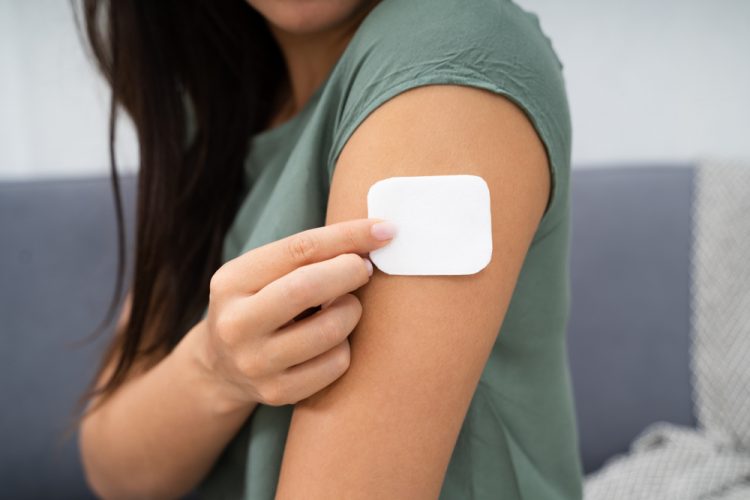Temperature stable microneedle patch successfully delivers DNA COVID-19 vaccine
Posted: 23 September 2021 | Hannah Balfour (European Pharmaceutical Review) | No comments yet
A microneedle patch, which can be stored for >30 days at room temperature, safely delivered a DNA-based COVID-19 vaccine in mice.


Researchers have developed a novel microneedle patch to deliver a COVID-19 DNA vaccine into the skin. The separable microneedle patch, which can be stored for over 30 days at room temperature, was found to induce strong immune responses in cells and mice.
To date, more than two billion people worldwide have been fully vaccinated against COVID-19; however, there is a distinct disparity between vaccination rates in developed and emerging nations. While North America, the UK and parts of Europe have vaccinated roughly 70 percent of their population, other resource-limited countries have struggled to vaccinate 10 percent. These nations have not been able to get vaccines, partly because they lack temperature-controlled shipping and storage facilities.
COVID-19 vaccines currently approved for use by the US Food and Drug Administration (FDA) and European Commission (EC) must be kept refrigerated or frozen, which limits their distribution to remote or resource-limited areas. Additionally, they must be administered by a trained healthcare worker via intramuscular injection.
Yet immune cells are not densely distributed within muscles, so scientists have been investigating various methods to deliver vaccines into the skin, which contains abundant antigen-presenting cells (APCs) and could therefore generate a stronger immune response. In this vein, Yin et al. worked to develop a microneedle patch that efficiently delivers a COVID-19 vaccine under the skin, causing potent and durable immunity without the need for a cold chain or injections.
In a paper published in ACS Nano, the team detail a DNA vaccine delivered via a separable microneedle patch. They selected a DNA-based vaccine because they are easier to produce than RNA- or protein-based ones, and more stable than RNA vaccines. However, DNA vaccines have shown limited efficacy in clinical trials because, unlike RNA or protein, the DNA must enter the nuclei of cells to work. Yin et al. hypothesised that, by delivering a DNA vaccine into the APC-rich skin rather than muscle, they could increase the likelihood that the DNA would enter cell nuclei and thus induce an immune response.
![Image of the COVID-19 vaccine delivering microneedle patch [Credit: Adapted from ACS Nano 2021, DOI: 10.1021/acsnano.1c03252].](https://www.europeanpharmaceuticalreview.com/wp-content/uploads/Covid-19-Vaccine-microneedle-Patch-375x208.png)
![Image of the COVID-19 vaccine delivering microneedle patch [Credit: Adapted from ACS Nano 2021, DOI: 10.1021/acsnano.1c03252].](https://www.europeanpharmaceuticalreview.com/wp-content/uploads/Covid-19-Vaccine-microneedle-Patch-375x208.png)
Image of the COVID-19 vaccine delivering microneedle patch [Credit: Adapted from ACS Nano 2021, DOI: 10.1021/acsnano.1c03252].
The delivery system was created by attached DNA sequences encoding either the SARS-CoV-2 (the virus that causes COVID-19) Spike (S) or nucleocapsid (n) protein to the surface of non-toxic nanoparticles containing an adjuvant to stimulate an immune response. They then coated a separable microneedle patch with these vaccine nanoparticles. The small rectangular patch contained 100 biodegradable microneedles that could painlessly penetrate the skin’s epidermis, or outer layer.
In murine models, the researchers found that the S-protein-encoding microneedle patch caused significant antibody and T-cell responses, with no observable side effects. Additionally, they demonstrated that the patches could be stored at room temperature for at least 30 days without losing efficacy. They therefore concluded that these vaccine-delivering separable microneedle patches could be an important tool for developing COVID-19 vaccines with global accessibility.
Related topics
Biologics, Drug Delivery Systems, Drug Safety, Formulation, Immunisation, Nanoparticles, Research & Development (R&D), Vaccine Technology, Vaccines, Viruses
Related organisations
The European Commission (EC), US Food and Drug Administration (FDA)









